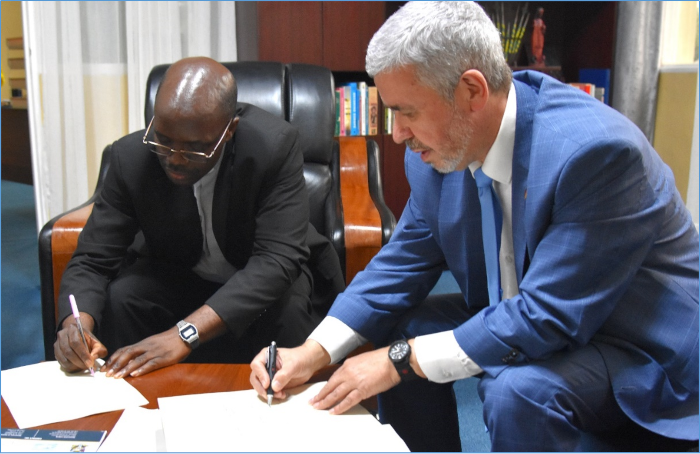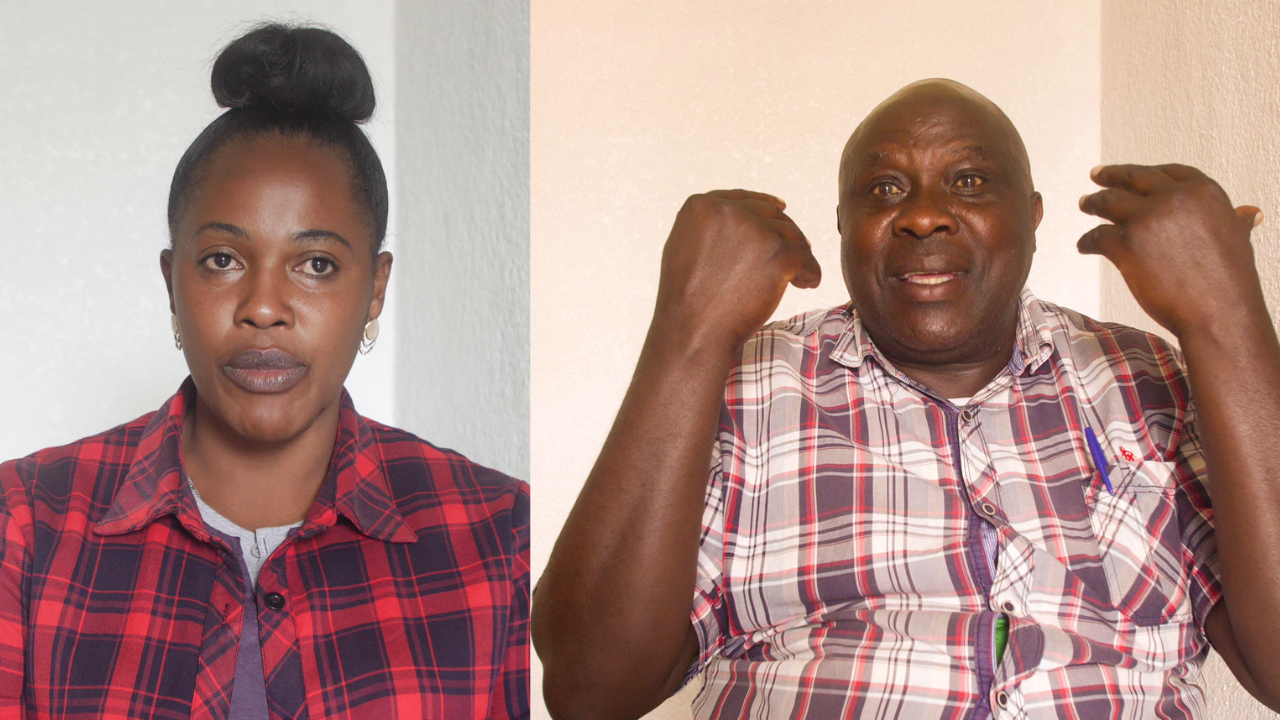The 13th AARSE International conference brought together scholars and professionals from the African and international communities
From 24th to 28th October 2022, the 13th AARSE International Conference was taking place at Kigali Conference and Exhibition Village (KCEV), in Kigali, Rwanda. The conference was organized by the African Association of Remote Sensing of the Environment (AARSE) and the ‘Institut d’Enseignement Supérieur de Ruhengeri’ (INES-Ruhengeri).
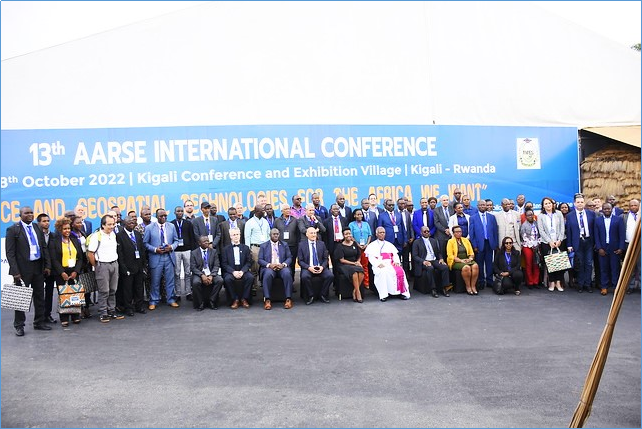
Delegates from 44 countries, including 13 from outside Africa, were present at the 13th AARSE International Conference (Photo/ Jean Paul)
The main objective of AARSE 2022 was to bring together scholars and professionals from the African and international communities to present the latest achievements, discuss challenges and share experiences in space and geospatial technologies. Delegates from 44 countries, including 13 from outside Africa, were present at the 13th AARSE International Conference.
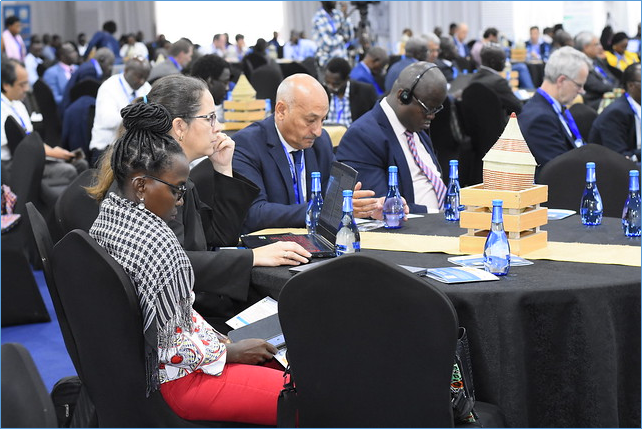
The #AARSE2022 brought together scholars and professionals from the African and international communities (Photo/ Jean Paul)
The conference program featured keynote speeches delivered by leading policymakers, and scholars, technical sessions with reports of the latest research outcomes, and discussion sessions on operational topics such as capacity building, Spatial Data Infrastructure (SDI), space policy, programs, and projects, as well as commercial exhibitions showing latest products and services in remote sensing and geospatial information technologies.
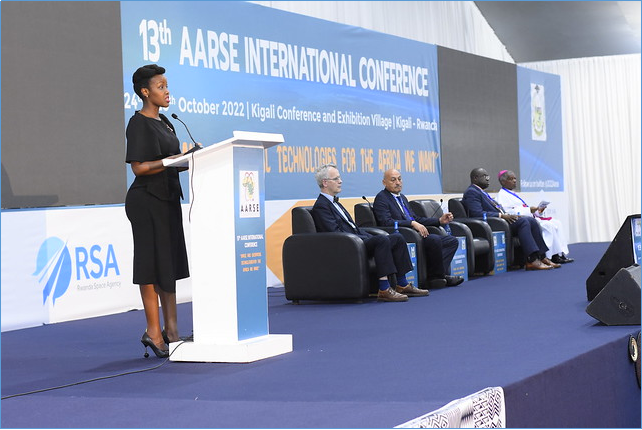
Hon. Minister of ICT and Innovation, Mrs. Ingabire Paula delivering her opening speech (Photo/ Jean Paul)
At the closing session, it was communicated that the 14th AARSE International Conference will take place in Abidjan, Ivory Coast, in 2024. A Kigali declaration also was issued and called the African Union and African Governments up to the following:
- Support the implementation of the Pan African Space Policy and Strategy and the African Space Agency;
- Support the African Union Commission in strengthening Africa’s space science and technology capabilities across the continent for the development of African nations;
- Stimulate and encourage dialogue across the African continent on space as a driver for innovation, technology development, and job creation by raising awareness at all levels of society;
- Provide African higher education institutions with adequate financial budgets and infrastructure to support education, basic and applied research in Earth observation and geospatial technologies for sustainable development;
- Support public-private partnership in space affairs and private sector provision of value-added services derived from Earth observation data and geospatial technologies;
- Urge national government institutions to make their In-situ data available and accessible to allow the delivery of accurate information products in combination with space-based data;
- Urge national space agencies to release their remote sensing data for the benefit of education, research, and service delivery;
- Recognize the role of specialized institutions at both the national and continental level in geo-information and Earth Observation and the role they can play together with AARSE to improve the geospatial knowledge and capacity in Africa;
- Increase local investments to complement external funding to ensure the sustainability of Earth Observation programs in Africa;
- Inspire Africa’s youth through innovative space-based education and outreach programs;
- Welcome the African diaspora to build and invest in African capacity and capability including in emerging technologies: big earth data, artificial intelligence, new algorithms, cloud computing, data cubes, etc.
AARSE is a non-political scientific organization. Its primary objective is to increase the awareness of African governments and their institutions, the private sector, and society at large about the empowering and enhancing benefits of developing, applying, and responsibly utilizing the products and services of Earth Observation Systems and Geo-Information Technology.
For this Academic Year 2022-2023, INES-Ruhengeri has 3664 total students (52.4% males and 47.6% females) for undergraduate and graduate programs. Total graduates churned to the labor market are 9277 by 11th March 2022 (the 13th graduation ceremony). INES-Ruhengeri opened its doors on 17th November 2003.
On 30th November 2023, a Memorandum of Understanding (MoU) between INES-Ruhengeri and the Universit…
LEARN NowStarting September 9, 2024, INES-Ruhengeri will offer a new Master of Science in Food Science and T…
LEARN NowBeneficiaries of F2FinRW, including farmers, seed multipliers, and traders, shared how the program …
LEARN Now